Use Booster
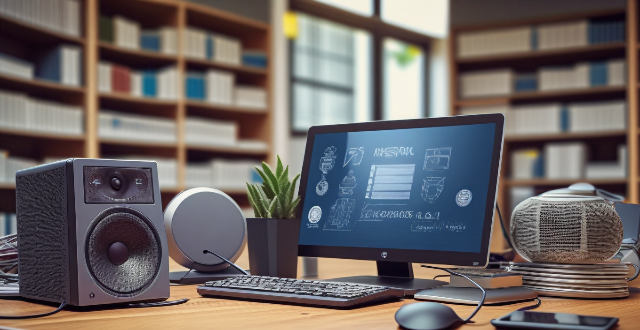
Is it safe to use a signal booster in my home or office ?
Signal boosters are devices that enhance cellular signals in areas where signal strength is weak. While they are commonly used in homes and offices to improve communication and connectivity, there are safety concerns associated with their use. These include potential increases in radiation exposure, interference with other electronic devices, and legal issues related to local regulations and carrier agreements. To use a signal booster safely, it is important to follow the manufacturer's instructions carefully, position the booster away from other electronic devices, research local regulations and carrier agreements, monitor performance regularly, and maintain the device properly. By taking these precautions, you can help ensure that your signal booster remains safe and effective over time.
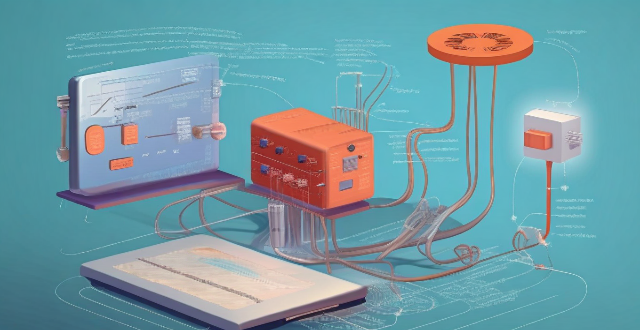
How do I install a signal booster in my building ?
Installing a signal booster in your building can improve mobile reception and internet connectivity. Identify problem areas, choose the right booster, determine antenna placement, run cables and connect boosters, test and adjust, and maintain and troubleshoot for optimal results.

How do I choose the best signal booster for my needs ?
### How to Choose the Best Signal Booster for Your Needs When selecting a signal booster, consider factors such as your location, the type of signal you want to enhance, and the technology involved. Ensure compatibility with your network provider's frequency bands and your devices. Consider gain and range, legal requirements, installation and maintenance, budget, customer reviews, and brand reputation. Future-proof your choice by opting for upgradable systems.

Will a signal booster work with all types of devices ?
A signal booster is designed to improve the strength and reliability of wireless signals, such as cellular, Wi-Fi, or radio frequencies. However, whether a signal booster will work with all types of devices depends on several factors, including the compatibility of the booster with the device's technology and frequency bands. Compatibility: Cellular Networks: Signal boosters for cellular networks are typically designed to work with specific frequency bands used by different mobile operators. For example, a booster that supports 2G, 3G, and 4G LTE signals may not be compatible with 5G networks unless it explicitly states so. Therefore, it's essential to check the specifications of both your device and the booster to ensure they are compatible. Wi-Fi Networks: Wi-Fi signal boosters, also known as Wi-Fi extenders or repeaters, are designed to work with standard Wi-Fi protocols like 802.11b/g/n/ac/ax. Most modern devices support these standards, but older devices may not be compatible with newer protocols like 802.11ac or 802.11ax. Additionally, some boosters may only support single-band operation (2.4 GHz) while others offer dual-band (2.4 GHz and 5 GHz) support, which can affect compatibility with your device. Radio Frequencies: For other types of radio signals, such as walkie-talkies or CB radios, boosters must be designed to operate at the correct frequency. These boosters are often more specialized and less universal than those for cellular or Wi-Fi networks. It's crucial to match the booster's frequency range with the frequency your device uses. Installation and Placement: Even if a signal booster is technically compatible with your device, its effectiveness can be influenced by proper installation and placement. Here are some key considerations: Location of the Booster: The booster should be placed in an area where it can receive a strong signal from the source (e.g., a cell tower or router) and then amplify it for your device(s). Cable Quality and Length: If using a wired connection between the booster and your device or router, make sure to use high-quality cables that are not too long, as this can degrade signal quality. Interference: Avoid placing the booster near objects that can cause interference, such as microwaves or thick walls, as this can reduce its effectiveness. Conclusion: In summary, while signal boosters can potentially work with various types of devices, their effectiveness depends on multiple factors including compatibility with the device's technology and frequency bands, as well as proper installation and placement. Always check the specifications of both your device and the booster before purchasing to ensure they are compatible and follow the manufacturer's guidelines for installation.

What is a signal booster and how does it work ?
A signal booster is a device that improves wireless signals in areas with weak coverage by receiving, amplifying, and retransmitting signals. It consists of an external antenna for capturing signals, a signal amplifier for increasing their power, and an internal antenna for distributing the enhanced signals. Benefits include improved reception, extended battery life, reduced dropped calls, increased coverage area, and healthier device performance. Signal boosters are useful in rural areas, basements, high-rise buildings, and vehicles traveling through challenging environments.

How much does a good quality signal booster cost ?
Signal boosters, also known as cell phone signal amplifiers or repeaters, are electronic devices designed to improve the strength and reliability of cellular signals in areas with poor coverage. The cost of a good quality signal booster can vary depending on several factors such as the type of technology used, the frequency bands supported, the coverage area, and the brand. The main types of signal boosters are analog and digital, with analog boosters generally being less expensive but not as clear or strong as digital boosters. The more bands a booster supports, the higher the cost is likely to be. Larger coverage areas require more powerful boosters, which tend to be more expensive. Well-known brands often charge a premium for their products due to their reputation, customer service, and warranty offerings. The cost of a good quality signal booster generally ranges from $200 to $1000 USD. Basic signal boosters suitable for small areas like a single room or vehicle typically cost between $200 and $300 USD. Mid-range signal boosters offer moderate coverage areas suitable for apartments or small offices and generally fall within the $300 to $600 USD price range. High-end signal boosters provide extensive coverage for larger homes, buildings, or outdoor spaces and typically cost between $600 and $1000 USD. When purchasing a signal booster, it's essential to consider installation costs if you plan to hire a professional, as well as any potential shipping fees if buying online. Additionally, look for products that come with a warranty or guarantee to protect your investment over time.

How often should I replace or update my signal booster ?
This topic summary discusses the importance of maintaining and updating a signal booster to ensure optimal performance. It outlines signs that indicate it's time to replace the booster, such as decreased performance or physical damage. The text also emphasizes the significance of regular firmware updates for improved functionality and security. Additionally, it provides a step-by-step guide on how to update the firmware and offers maintenance tips to prolong the booster's lifespan, including cleaning antennas, avoiding obstructions, and regular inspections. Overall, the summary stresses the need for periodic checks and updates to keep the signal booster functioning effectively.
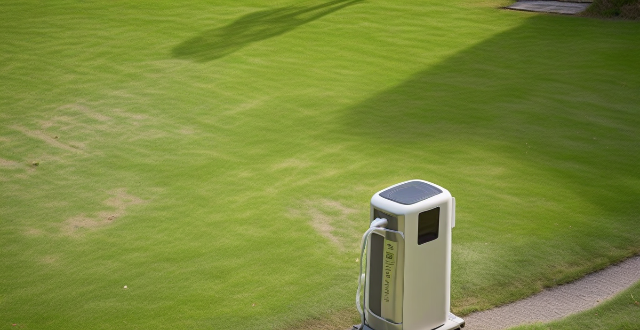
Can a signal booster be used outdoors ?
Signal boosters are versatile devices that can be used outdoors to enhance wireless signals like cellular, Wi-Fi, and GPS. While they offer significant advantages in improving connectivity in various outdoor scenarios, their effectiveness depends on factors such as environmental conditions and installation challenges. Proper planning and understanding of the specific needs and technical requirements are crucial for successful implementation.
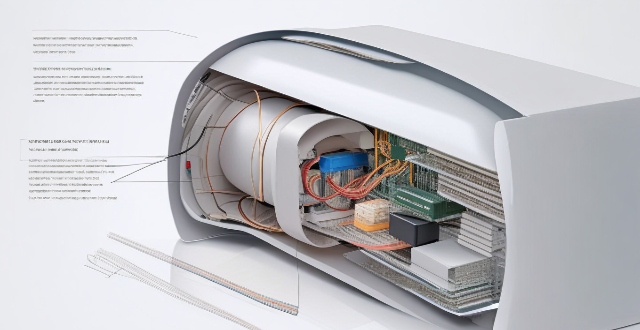
Are there any side effects of using a signal booster ?
Signal boosters can improve wireless connectivity but may cause side effects like overheating, interference with other devices, limited bandwidth, security concerns, and challenges from physical obstructions. It's important to consider these potential issues and take precautions to minimize them.

How can I fix a bad cell phone signal ?
How to Fix a Bad Cell Phone Signal A poor cell phone signal can be frustrating, especially when you need to make an important call or access the internet. Here are some tips on how to fix a bad cell phone signal: 1. Check Your Network Coverage - Check for network outages - Try another network 2. Identify and Remove Obstacles - Move to an open area - Remove objects blocking the signal 3. Restart Your Phone - Turn off your phone - Turn on your phone 4. Update Your Phone Software - Check for software updates - Clear cache and data 5. Use a Signal Booster or Antenna - Use a signal booster - Use an external antenna

How can I improve my internet speed on public Wi-Fi ?
Improving internet speed on public Wi-Fi involves optimizing device settings, using online tools, and connecting to less congested networks. Tips include updating devices, turning off unnecessary apps, using a VPN, clearing browser cache, disabling extensions, using a lightweight browser, using a Wi-Fi booster or signal extender, avoiding peak times, choosing less popular networks, and testing speed with online tools like Speedtest and Google PageSpeed Insights.
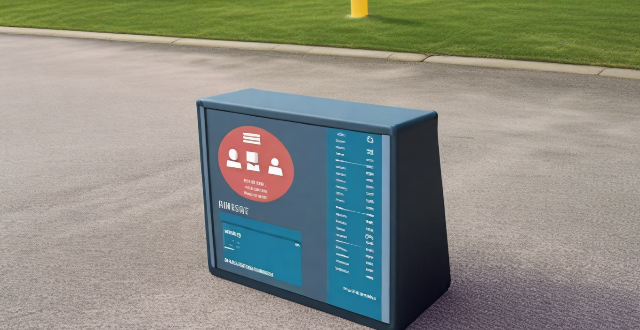
How can I improve my cell phone signal ?
Improving your cell phone signal can be crucial for effective communication. Here are some tips to enhance your signal: check for obstructions, switch network settings, remove cases and covers, restart your phone, update firmware, use a signal booster, or contact your service provider for assistance.

How do I boost my cell phone signal strength ?
Having a strong cell phone signal is crucial for making calls, sending messages, and using mobile data. If you're experiencing poor signal strength, there are several ways to improve it. Here are some tips on how to boost your cell phone signal strength: 1. Check for Obstructions: Objects like buildings, walls, and trees can block or weaken signals. Try moving to an area with fewer obstructions. 2. Use 2G Instead of 3G/4G: If you're having trouble with 3G or 4G, switch to 2G. While slower, 2G networks are more widespread and often provide better coverage in remote areas. 3. Keep Your Phone's Software Up to Date: Manufacturers often release updates that can improve signal strength. 4. Use a Signal Booster: These devices work by capturing an outside signal, amplifying it, and rebroadcasting it inside your home or office. They can significantly improve signal strength in areas with weak coverage. 5. Contact Your Service Provider: If none of the above solutions work, contact your service provider and report the issue. They may be able to identify a problem with their network or offer additional solutions.

How often should I use a language learning app to see significant improvement ?
To see significant improvement with a language learning app, it's recommended to use the app daily for at least 10-15 minutes, setting weekly targets and focusing on consistency over intensity. Combining app use with real-world interactions and adjusting your routine based on progress tracking are also key strategies.

Is there a difference between PPE for medical use versus industrial use ?
The text discusses the differences between personal protective equipment (PPE) for medical use and industrial use. It explains that these differences mainly concern the level of protection required, the type of hazards encountered, and the specific features of the equipment designed to address those hazards. Medical professionals often deal with infectious diseases and thus require PPE that can protect them from pathogens like viruses and bacteria. This typically involves higher levels of protection, such as respiratory protection with N95 respirators or equivalent, which filter out airborne particles, and blood-borne pathogen protection with gloves, gowns, and face shields or goggles to prevent contact with blood and bodily fluids. Industrial workers face different types of hazards, including chemical exposure, physical injuries, and environmental factors. Their PPE tends to focus on chemical protection with protective suits, gloves, and boots made from materials resistant to specific chemicals or solvents, and physical protection with hard hats, safety glasses, and high-visibility clothing to prevent injuries from machinery or construction sites. The primary hazard in a medical setting is biological agents, such as viruses, bacteria, and other pathogens that may be present in patients' blood or other bodily fluids. Workers in industrial settings face a variety of hazards, including but not limited to chemical exposure from handling toxic substances, physical dangers from heavy machinery and equipment operation, and environmental risks such as extreme temperatures or noise pollution. PPE for medical use often includes features like fluid resistance with materials that are impermeable to liquids to prevent contamination, antimicrobial treatment with some PPE items having an antimicrobial coating to reduce the growth of microorganisms, and compatibility with other medical equipment designed to be used in conjunction with other medical tools and devices without interference. PPE for industrial use emphasizes features like durability with materials that can withstand harsh conditions and repeated use, comfort and mobility often lighter and more flexible materials to allow for ease of movement over long periods, and specialized functionality such as gloves having enhanced grip or shoes having steel toes for added protection against physical impacts.

Can I use multiple coupon codes on a single transaction ?
The ability to use multiple coupon codes on a single transaction varies by retailer. Some, like Amazon and Target, allow it while others, such as Best Buy and Macy's, do not. To maximize savings, shoppers should read coupon terms carefully, stack coupons when allowed, use them wisely, sign up for newsletters, and follow retailers on social media for exclusive offers.

Is it necessary to use props while practicing yoga poses ?
Props can be beneficial for alignment, modification, deepening practice, and comfort in yoga. However, they should be used wisely to avoid over-reliance or incorrect use. Individual needs and preferences also play a role in deciding whether to use props while practicing yoga poses.

How effective is the COVID-19 vaccine ?
The effectiveness of the COVID-19 vaccine varies depending on the type of vaccine and the population being vaccinated. mRNA vaccines have an efficacy rate of around 95% against hospitalization and death due to COVID-19, while adenovirus vector vaccines have an efficacy rate of around 66% and inactivated virus vaccines have an efficacy rate of around 70%. Older adults and people with underlying health conditions may require additional doses or booster shots to achieve optimal protection against severe cases of COVID-19. Populations with higher rates of transmission may also require additional doses or booster shots to achieve optimal protection against COVID-19.

How long does immunity last after getting vaccinated against COVID-19 ?
Vaccines work by triggering an immune response that teaches the body how to fight off a virus. COVID-19 vaccines provide strong protection against severe illness and hospitalization, but it is still possible to contract the virus after being vaccinated. Immunity wanes over time, so booster shots are recommended to maintain protection. It is important to continue following safety measures such as wearing masks and social distancing to reduce the risk of infection.

Can vaccines protect against new virus variants ?
**Can Vaccines Protect Against New Virus Variants?** The ability of vaccines to protect against new virus variants depends on various factors, including the type of vaccine, the nature of the virus, and the rate of mutation. While some vaccines may provide cross-reactivity and adaptive immunity against multiple strains, others may require updates or booster shots to maintain protection against emerging variants. Public health measures such as masking, social distancing, and hand hygiene remain crucial in combination with vaccination efforts. Continuous global surveillance is essential for developing effective strategies to deal with new variants.

Are lithium batteries safe to use ?
Lithium batteries have become an integral part of modern technology, powering a wide range of devices from smartphones to electric vehicles. However, concerns about their safety have been raised due to incidents of overheating and fires. In this article, we will explore the safety aspects of lithium batteries and provide guidance on how to use them safely. One of the main safety concerns with lithium batteries is the risk of overheating and catching fire. This can occur if the battery is damaged, improperly charged, or exposed to extreme temperatures. When a lithium battery overheats, it can cause a chemical reaction that leads to thermal runaway, which is a self-sustaining process that can result in a fire or explosion. Another safety concern associated with lithium batteries is the potential for chemical hazards. The chemicals used in lithium batteries can be toxic and harmful to human health if they are ingested, inhaled, or come into contact with skin or eyes. It is important to handle these batteries with care and dispose of them properly to avoid any potential risks. To minimize the risks associated with lithium batteries, it is essential to follow some basic safety tips: 1. Use genuine products from reputable manufacturers to ensure that the battery meets safety standards. 2. Avoid overcharging by not leaving your device charging unattended and avoiding using cheap chargers that may overcharge the battery. 3. Store your lithium batteries in a cool, dry place away from direct sunlight and extreme temperatures. 4. Inspect your batteries regularly for any signs of damage or swelling, and replace them if necessary. 5. Dispose of your old lithium batteries properly by taking them to a recycling center or following the manufacturer's instructions. 6. Follow the manufacturer's guidelines for your specific device and battery. 7. Keep lithium batteries out of reach of children as they may pose a choking hazard. 8. Use protective cases or covers for your devices to prevent damage to the battery. 9. Avoid dropping or mishandling your device as this can damage the battery and increase the risk of overheating. 10. Seek professional help if you notice any issues with your battery, such as swelling or leakage. In conclusion, while there are some safety concerns associated with lithium batteries, following these safety tips can help reduce the risks and ensure that you use them safely. By being cautious and responsible, you can enjoy the benefits of these powerful batteries without compromising your safety.

How do I use Apple Pay in stores ?
Apple Pay is a convenient and secure way to make purchases using your Apple device. Here's how you can use it in stores: 1. Set up Apple Pay on your device by opening the Wallet app, tapping the plus sign, and following the prompts to add a new card. 2. Use Apple Pay at the checkout by double-clicking the side button on your iPhone, holding it near the contactless reader until you see Done and a checkmark, and entering your PIN or signing your name if prompted. 3. Confirm your payment by looking for a confirmation on your device. 4. Keep your receipt in case you need to return or exchange an item.
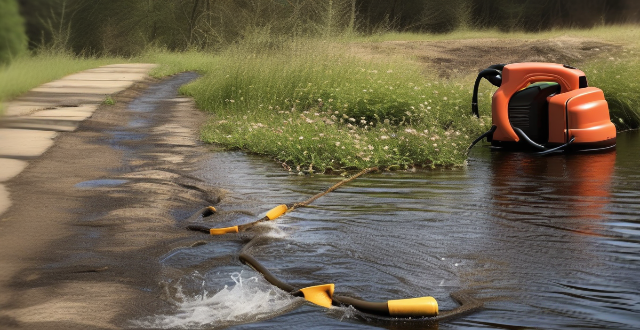
How do I properly use and maintain electrical equipment ?
Electrical equipment requires proper use and maintenance to ensure safety, efficiency, and longevity. Key tips include reading the manual, inspecting before use, avoiding overloading, keeping away from water, cleaning regularly, checking wiring, replacing parts as needed, storing properly, unplugging when not in use, using surge protectors, and avoiding DIY repairs for significant issues. Following these guidelines helps extend the lifespan of electrical equipment and minimizes risks associated with their use.

Is it ethical to use genetically modified organisms (GMOs) in agriculture ?
The use of genetically modified organisms (GMOs) in agriculture is a complex and contentious issue that raises ethical questions. Proponents argue that GMOs offer benefits such as increased crop yields, reduced pesticide use, improved nutrient content, and environmental sustainability. Opponents raise concerns about human health risks, economic concentration, environmental impact, and ethical considerations. Key ethical considerations include scientific evidence, public perception, equity and access, environmental stewardship, ethical principles, regulatory oversight, long-term monitoring, global collaboration, innovation and alternatives, and education and awareness.
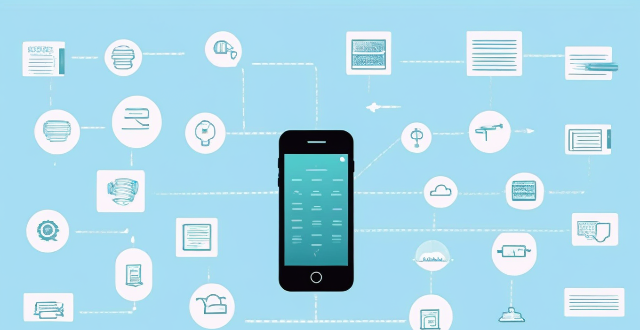
Why is my cell phone signal weak ?
The article discusses common reasons for weak cell phone signals, including distance from the cell tower, network congestion, device issues, and carrier-related problems. It suggests solutions such as moving closer to the cell tower, avoiding network congestion, checking device issues, and contacting your carrier to improve signal strength.

How can I get better cell phone coverage in rural areas ?
Improving cell phone coverage in rural areas can be achieved through various methods. Firstly, checking and optimizing your phone's settings can enhance reception. Secondly, signal boosters or cell phone repeaters can amplify weak signals. Thirdly, switching to a different carrier with better rural coverage might be beneficial. Fourthly, satellite phones offer unparalleled coverage in extremely remote locations. Fifthly, using public Wi-Fi networks can temporarily improve internet connection. Lastly, investing in high-quality antennas can capture weaker signals more effectively.

Are fast charging car chargers safe to use ?
Fast charging car chargers have raised safety concerns due to risks such as overheating, battery degradation, and electrical hazards. To ensure safe use, it is recommended to use approved chargers, follow manufacturer's guidelines, monitor charging temperatures, avoid overcharging, inspect wiring and connections, use a surge protector, and store the charger properly. By following these tips, the risks associated with fast charging can be minimized.
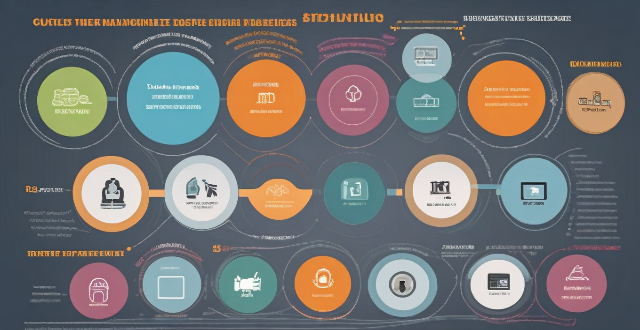
What are some common ways that companies collect and use personal data ?
Companies employ various direct and indirect methods to collect personal data, which they then use for marketing, product development, enhancing customer experiences, and ensuring security.

Can I upgrade my broadband speed without changing my internet service provider (ISP) ?
To upgrade your broadband speed without changing your ISP, first check your current plan for upgrade options. If upgrading your plan isn't possible or enough, consider adding a secondary connection, using a Wi-Fi booster, upgrading your modem/router, or optimizing your network. Contacting your ISP's customer support team can also provide information on available plans and help you choose the right one for your needs.